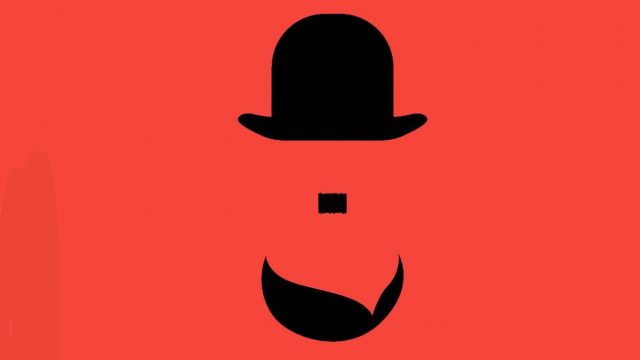Modern Times was my introduction to Charlie Chaplin, and in these modern times, we may also find resonance in The Great Dictator, which focuses on a buffoon with far too much power who spouts gibberish and acts impetuously with no apparent knowledge of policy. Like Modern Times, Chaplin’s first talkie is eerily prescient, but here he was satirizing a leader from his own time. I appreciate the historical context, as in 1940, before the United States had even entered World War II, it was a bold move to portray a parody of Adolf Hitler—as looking identical to a Jewish barber, even!—but since then, there have been many parodies of Hitler. Hell, just last year I saw Funny Hitler in Preacher and Jojo Rabbit. I didn’t find The Great Dictator hilarious; it mostly gave me occasional chuckles as opposed to belly laughs. Unsurprisingly, I found it to be strongest when Chaplin played to his silent film strengths. The sequence where Chaplin shoots an upside-down plane right-side-up? Delightful! The Jewish barber eating successively more pennies in his pudding? Marvelous! The visual gag of a Hitler parody and a Mussolini parody cranking barber chairs ever higher? Brilliant! This is not a film known for its sparkling dialogue; the funniest things anyone says are the fake German and Italian that often devolve into names of food. But the two scenes I want to focus on here are a scene with no words and a scene that’s all words: the balloon-globe dance and the final speech. Both scenes feature only Charlie Chaplin onscreen, and in one he plays fascist dictator Adenoid Hynkel, and in the other he plays an unnamed Jewish barber (playing the aforementioned fascist dictator), so there is an inherent comment on the fact that the leader and the common man are indistinguishable. The inability for people to tell the two of them apart becomes a plot point in the end. The leader should have the perspective of the common man, and the common man has the potential to have the power of a leader.
The balloon-globe dance is simply sublime. Hynkel asks to be left alone after he realizes he could become “emperor of the world.” He examines the globe by his desk, which sits nestled in a metal stand, and then he picks it up, revealing it to be a balloon. Now he’s got the whole world in his hands, but the music is not “He’s Got the Whole World in His Hands,” because that would be too on the nose (and also because it had not become popular yet). Instead it’s a piece by Wagner, one of Hitler’s favorite composers. And, to be more accurate, he’s got the whole world in his hand. Hynkel delights in his ability to kick the globe into the air and then catch it one hand. So we watch this idiot literally playing with the fate of the world. It’s just a toy to him, and while it’s a comment on him and his attitude toward the world, it’s also terrifying that the world is so light that he can bounce it up with his butt. As he spins the globe on his finger, you wonder where his attention will land. North America? South America? Africa? Will he point to your hometown and decide to take it over? What’s particularly chilling here is that there’s nothing overtly sinister going on. Hynkel gazes upon the globe with love and adoration, and although the globe has no agency of his own, it feels like they are dancing with each other. Of course you’re just waiting for it to pop, and when Hynkel embraces his lover just a little too hard, it explodes in a perfect metaphor for how fascism would utterly destroy the world.
The final speech is sublime in a completely different way. Now this nameless barber speaks for the popped globe. With the same face as the man who delighted in the prospect of being emperor of the world, he declares that he does not want to be an emperor. He begins with vulnerability in a static, intimate shot, but when he notes that his voice is reaching millions, we quickly dissolve to Paulette Goddard, one of those millions, and when we return, the camera has pulled out and we see the microphones. It’s now that he addresses the soldiers and becomes more impassioned, as this is his true audience, the ones who can actually stop the war by refusing to be consumed by the war machine. The camera pushes in when he begins to quote the Bible, and he sounds almost possessed by the Holy Spirit as he continues to stoke fervor. The film introduces Hynkel with a gibberish speech and it ends with this stark contrast, a powerful paean to idealism. This speech holds up eighty years later, turning two hours of absurdity into a call to action. Honestly, it does not fit the actual character at all—this is clearly Charlie Chaplin himself speaking to the real people of the world—but since the character represents the common man, it works.
While I was not impressed with the film as a whole, I love these two scenes for how they encapsulate two entirely different points of view, and the fact that the character in each is played by the same actor is a subtle mindfuck in its own way. Is there a common man who views the world as Hynkel does? Is there a leader who views the world as the barber does? These two scenes deftly comment on the power a single person can have on the world, for good or for evil, but the world is composed of many people. How does the collective respond to the individual? The dance reminds us that the world is fragile, but the speech reminds us that the world is strong.


